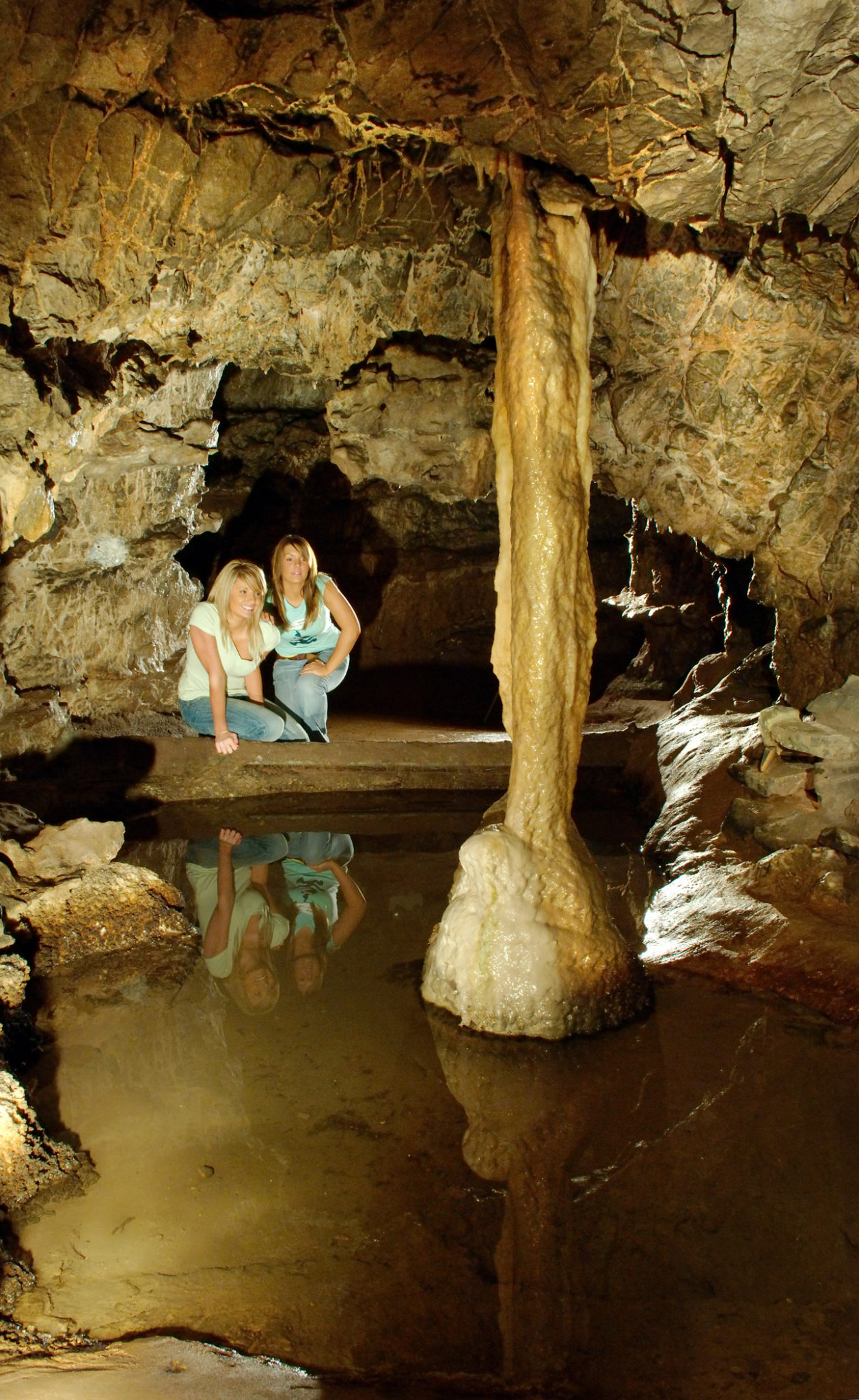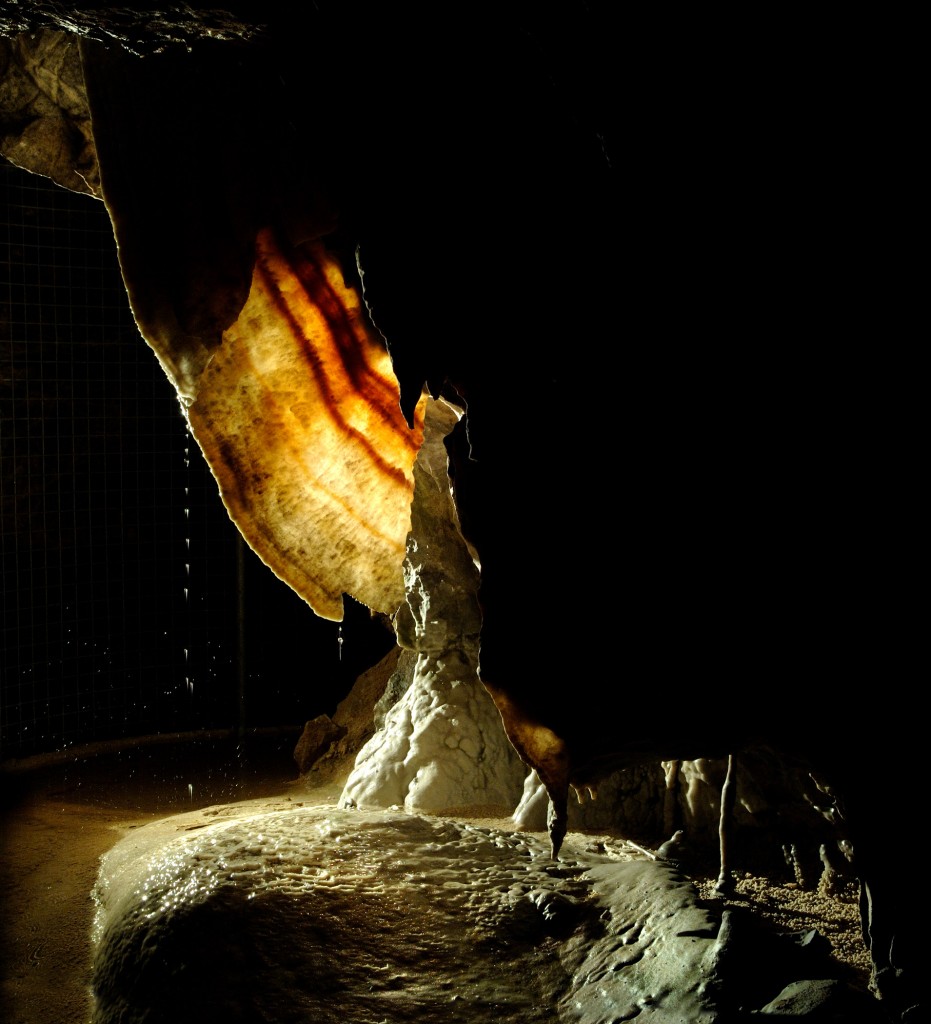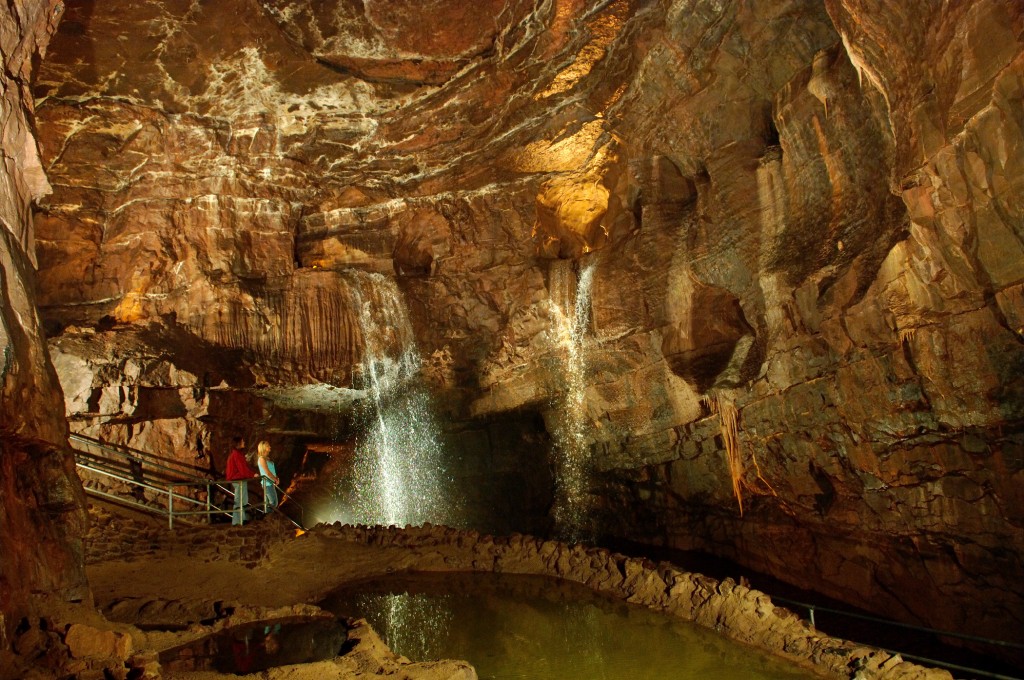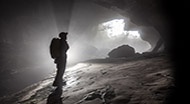
A recent article in Descent based on a letter from Ashford Price, member of the Association of British and Irish Show Caves (ABIS), expresses the Associations strong objection to the BCA proposal to alter the present CRoW Act and states clearly that in their opinion any “amendment or change of interpretation of the CRoW Act” to allow caving would be “a disaster for public safety, conservation and protection of the underground cave environment”.
Having read the article our first thought was to run a follow up entitled “Why should the BCA listen to show cave owners?” – we after all are the cavers and they are the show cave owners. We somewhat nervously contacted Ashford to see if he would comment. His common sense response was emphatic, supportive and generous, and his clear understanding of both sides of the argument led to the change in title – from a question to a statement, and a rapid re-assessment of the “us” and “them” view.
Throughout the discussion Ashford Price repeatedly stressed his members were unanimous in the views expressed. He also repeatedly stressed they want to maintain the good relationship they have with cavers, and that they feel the campaign is being spearheaded by a small group of cavers mainly concerned with access problems in the Dales. Obviously the campaign has wider support, but we think his concerns should be of interest to cavers on both sides of the discussion.
Who are ABIS?

The sixteen members represent the majority of UK and Irish show caves. Between them they employ over five hundred people, many of whom are cavers. Sixty two
people are employed at Dan-yr-Ogof alone. ABIS with over two million visitors a year represent the biggest contribution of caving to the economy, and whilst there are no clear figures even if the average visitor spent just £10 that contribution would be in excess of £20 million a year, in fact it’s probably much higher than this and almost certainly dwarves the contribution from sports caving. Show caves tend to be in rural areas, meaning other local businesses are highly dependent on the footfall they bring in. Ashford makes the point that without show caves in some of these areas the local petrol stations, cafés, shops and post offices would all struggle to survive. Any caver even occasionally visiting Castleton or Cheddar has seen this for themselves.
As an organisation ABIS is committed to conservation and protection of the underground environment, as well as education. Six members have a dedicated education centre and many offer far more than just guided tours. Perhaps we should contrast that to UK caving’s overall commitment to educating the wider public – or perhaps we shouldn’t?
For many non-cavers their first experience of the underground will be via a show cave. Ashford is keen to stress the typical reaction of newcomers – they want to touch and feel stalactites and flowstone, not just view from afar – in fact ideally many would like to take a few stals home. Many are surprised it’s dark underground!
Every show cave has some form of government conservation protection such as SSSi or National Nature Reserve status, and of course as a result has a relationship with the appropriate body, such as Natural England or Natural Resources Wales.
Given their efforts in education and conservation it’s clear that far from being just businesses show caves owners have become cavers, and they employ cavers, but that’s not all. Show cave owners are also landowners. The National Showcaves Centre for Wales doesn’t just include Dan-yr-Ogof, but also the stunning Cathedral Cave and the archaeologically important Bone Cave, for example. Of course as landowners they don’t just own the caves, but the land above, and they clearly understand Countryside Rights of Way, its intricacies and implications.
ABIS members generally have long had excellent relationships with sport cavers, often both at club and individual level. Most show caves allow access to areas beyond the cave for sport trips, and often for digging trips. In fact as Ashford points out, and I’ve experienced many times, very often the highlight for visitors is meeting a real caver on his or her way out from the “wild” section beyond the show cave. Visitors asking how to get involved in caving are usually directed to one or more BCA clubs, and many cavers will have begun their underground career in this way.
All of this places ABIS members in a unique position in caving. They understand landowners, they understand caves, caving and cavers, they understand the legislation, they understand how the authorities work and they work daily in areas such as safety, conservation and education.
Why Do ABIS object to the BCA campaign
ABIS have broadly given three reasons for their objection to the BCA campaign, public safety, conservation and protection of the underground environment, and landowner relations. They have also highlighted that the natural cave environment is very different from the man made moors and fells of the surface above, which the CRoW act is designed for.

ABIS believe that allowing access to caves via CRoW would put people, especially non cavers, at risk. The CRoW campaign makes much of the risk to the safety of
cavers, claiming that difficulties in obtaining permits encourage them to take risks in poor weather rather than wait for another day and a new permit. In fact as we know obtaining a permit is often as simple as sending an email, and usually takes just a few hours, and most experienced cavers would view someone entering a flood prone cave on a very wet day simply because they had a permit as an idiot. We’ve all had wet days where plans have changed. At the same time the campaign has largely ignored the risk to non-cavers, and perhaps most importantly inexperienced or occasional cavers.
Ashford explained that their view is that there is an increasing number of these “cavers”, often completely outside of the club system, many with little experience, venturing underground. We’ve all occasionally been asked “can anyone go down there” as we’ve surfaced after a trip, but this is more than that. Many cavers would probably agree that the growing trend towards experiencing adventure and adrenaline sports has led to an increase of people trying a few caves, a few climbs, a few parachute jumps, hang gliding, abseiling, canyoning, kayaking and more but without ever really committing to one sport in the longer term. They feel a right of access under CRoW would increase the sense of entitlement, and confidence to venture to places they wouldn’t have before and that we could see an increase in accidents as a result.
As cavers we know public safety also includes walling, gating or grilling entrances in popular tourist areas. This is much more difficult under CRoW, we’ve seen just how difficult fitting a gate can be without the complication of CRoW at Drws Cefn for example, where after years of argument the entrance remains open. Obviously some caves cannot be gated, and the problem varies greatly from area to area. Most cavers would probably agree that if Gaping Gill was ten metres from the National Trust car park in Clapham it would be essential to construct a secure wall around it and gate Jib Tunnel. Although there is provision for restricting access under CRoW it is by no means certain that new entrances could be protected, or even that existing gates would remain. At best all we can say is that what is often now a fairly simple process where cavers, landowner and NE or NRW agree a gate should go in would be subject to a lengthy and bureaucratic procedure.
Equally ABIS are concerned that for many of the same reasons it will become more difficult to conserve, preserve and protect caves and that unique archaeology and scientific evidence could be lost.
ABIS third concern should perhaps be the most worrying message for BCA.
Ashford reports that many local landowners in his own area in South Wales as well as ABIS members are either “concerned”, “mystified”, or feel “let down” by the BCA’s actions. This seems to be the first concrete evidence that the campaign is having an effect on landowner relations. Unsubstantiated rumours of similar feelings in other caving areas (not to mention the odd far stronger comment) have been reaching us for a while, but crucially this is the first time we’ve heard these worries expressed directly by landowners.
ABIS, in their letter, state the impact of changing the legislation could have a “severe negative impact to some of our members when at present the showcave community has a good working relationship with BCA members” and that “this current campaign….could only damage these relationships.”
Should the BCA National Council be listening to ABIS?
Of course they should. This is not a few unhappy cavers who don’t like CRoW. This is an organisation with a huge investment in caves, that understands both landowners and cavers, that understands access issues, conservation, education as well as the general public and that clearly is appealing to us to stop a campaign that they can see doing nothing but damage. In fact this is probably the closest to expert and independent advice we’ll get.
